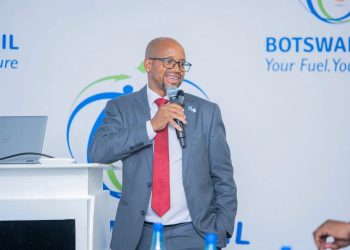
Namibia’s Energy minister, Tom Alweendo, has proposed the establishment of an Oil and Gas Institute, in partnership with industry stakeholders, to support local entrepreneurs and address critical skill gaps in the oil sector.
Alweendo told a recent event that the proposed institute will focus on equipping Namibians with a range of technical skills needed to actively participate in the growing oil and gas industry.
“But we need to start somewhere, and we have agreed with the industry that it makes the most sense to collaborate in establishing an Oil and Gas Institute that all stakeholders can support. This institute will ensure that Namibians receive essential training, equipping them with the foundational and intermediate skills needed to actively participate and succeed in the industry,” he said.
He further said it is important to empower local businesses, noting that while concerns about quality and capacity are valid, they should not prevent Namibian entrepreneurs from engaging in the sector.
Instead, he called for strategies that foster skill development and ensure local businesses can meet industry standards.
“Quality should not be a reason to limit or stop Namibian entrepreneurs from providing services. We need to find ways to support them in improving their quality standards. Similarly, while there are concerns about local businesses not always being able to meet the required quantity or frequency of services, these challenges should drive us to develop solutions that enable their full participation,” he said.
The Minister also expressed hope that local entrepreneurs will leverage these opportunities, encouraging them to actively pursue skills that will eliminate existing challenges and position them for success in the industry.
This initiative, he affirmed, will ultimately strengthen the Namibian economy by creating a skilled workforce ready to take on vital roles in the oil and gas sector.
“We also need to remind our entrepreneurs that success in this industry will come if they position themselves to utilise mechanisms put in place by the government or private sector companies. These resources will help them acquire the skills needed to participate effectively in this sector,” he said.
According to the Oil and Gas Industrial Baseline Survey (IBS) conducted by Deloitte, Namibia has identified a shortage of skilled labor as one of the key challenges, along with the need for local suppliers to upskill in order to participate effectively in the oil and gas sector.
Namibia’s oil and gas sector is currently in the appraisal and exploration phase, which typically lasts from two to five years and involves significant drilling and data analysis.







